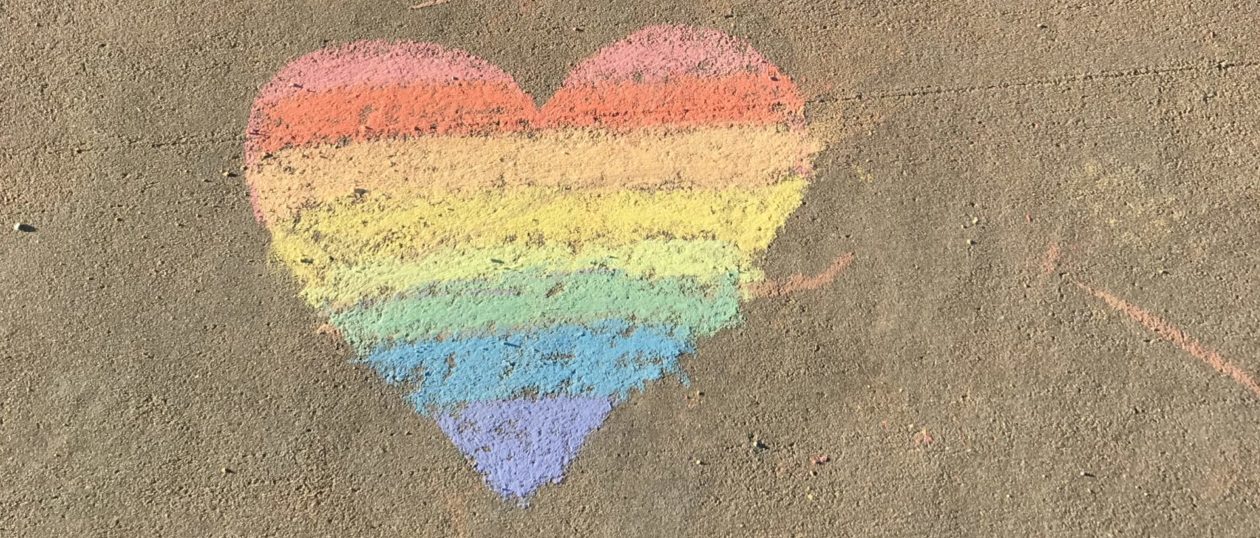If you are not colorblind (in the medical sense) and are otherwise a “seeing” person, you might have to trust the truth of people who are colorblind when they tell you that shades of color exist differently than the ones you perceive with your own eyes. It’s not that your experience of color isn’t also valid, it’s just not the whole picture. You can’t even be aware of what you cannot see the same if you rely solely on your own perception of color. At some point you might realize you need to be open to the idea that you cannot see what many others experience in a different way, and you might decide to let them teach you about the way they perceive color.
Now hold on to that understanding of depending on others to understand the world more fully as we dive a little deeper.
As in the example above, it may take a similar amount of faith in the perceptions and experiences of others if you are unaware of the injustices around you in order to understand that they even exist. All it takes in order to UNDERSTAND is for you to be willing to open your heart and mind and LISTEN. The only catch is that you have to CHOOSE to understand. An added challenge is that this path of enlightenment pretty much requires you to travel it with a combo of humility and curiosity, which are not easy for most of us.
Several years ago, I felt like there was a bigger picture that I might be missing as I began to listen to friends who were speaking their truth. Their truth didn’t sync up with my truth, and total truth be told, probably made me a little uncomfortable, so I wanted to dismiss it. Their version of the truth threatened to ruin the rose-colored way I “saw” and related to the world, but instead of shutting them out, I realized I had a choice. I could choose to stay inside of my white, straight-passing, cisgender, able-bodied, middle-class, Christian bubble with my blinders (aka willful ignorance) to their worlds firmly attached, or I could remove them and venture into my friends’ realities with them to better understand their experiences. Since I cared about my friends, I chose to listen. Without arguing their truth, dismissing it, or trying to play Devil’s Advocate for what “probably well-intentioned people might have meant” by their words and actions that hurt my friends, I listened.
Their truth was heartbreaking. It was uncomfortable. It hurt. I wanted to go back to being blissfully ignorant, but I was too curious about their experiences, and I cared about them too much to stop listening, so I asked questions when they were welcome, and I listened some more. At some point I realized my blinders were completely gone, because the pain I witnessed without them was crushing. I wanted my blinders back. I wanted to not see the hurt and empathize with the pain and feel the guilt for not having been able to see it before. Why couldn’t I see it before?! Why can no one else see this, ESPECIALLY people in the Church?! If everyone could see it, we could fix it!
And so I was called… to be a bridge and help people learn how to “see” the world through the lens of another, to remove their metaphorical blinders to the social injustices that plague our families, friends, coworkers and neighbors, AND the people who are none of those things but who are no less important. Honestly, I’ve wished a thousand times for an easier calling, but this messy middle is the sacred ground to which I was called, so here I am doing my best to build bridges of understanding between different realities using nothing but empathy, knowledge gained from experience, and words. And yes, it often feels as daunting as it sounds.
It’s been my experience that people who can see the bigger picture and dare to ask others to see it too are often characterized as radical activists, even when they are driven by Love for the hurting, broken and marginalized. This bothered me until the recent moment I realized that Jesus also would have been characterized as a radical activist in his day. Jesus loved in such radical, non-conformist ways that he was ridiculed, called a blasphemer, beaten and put to death for it. Why did he love so radically and risk so much? Jesus wasn’t ignorant to any injustice that affected his people, and he understood that we belong to each other, so he risked his reputation, safety and life to be Love. 1 Corinthians 12:26 (ESV): “If one member suffers, all suffer together; if one member is honored, all rejoice together.”
I can’t imagine there is anything better than loving people so radically that you’re willing to give up your own comfort as well as your concerns about what others think of you, and so the choice that I repeatedly make is to UNDERSTAND, to LOVE, and to continue to pray this prayer even when it hurts: “Dear God, please let me UNDERSTAND. Break my heart for what breaks yours and give me the courage to Love loudly.”
If you’re ready to pray that prayer, buckle up. Get ready to get uncomfortable. But know that it’s only when we’re outside of our comfort zones that growth happens, and I’ll be here to help you through. I’ll be the witness to your discomfort and growth, so you don’t have to do it alone, because life is just better when people witness and acknowledge your humanity.
